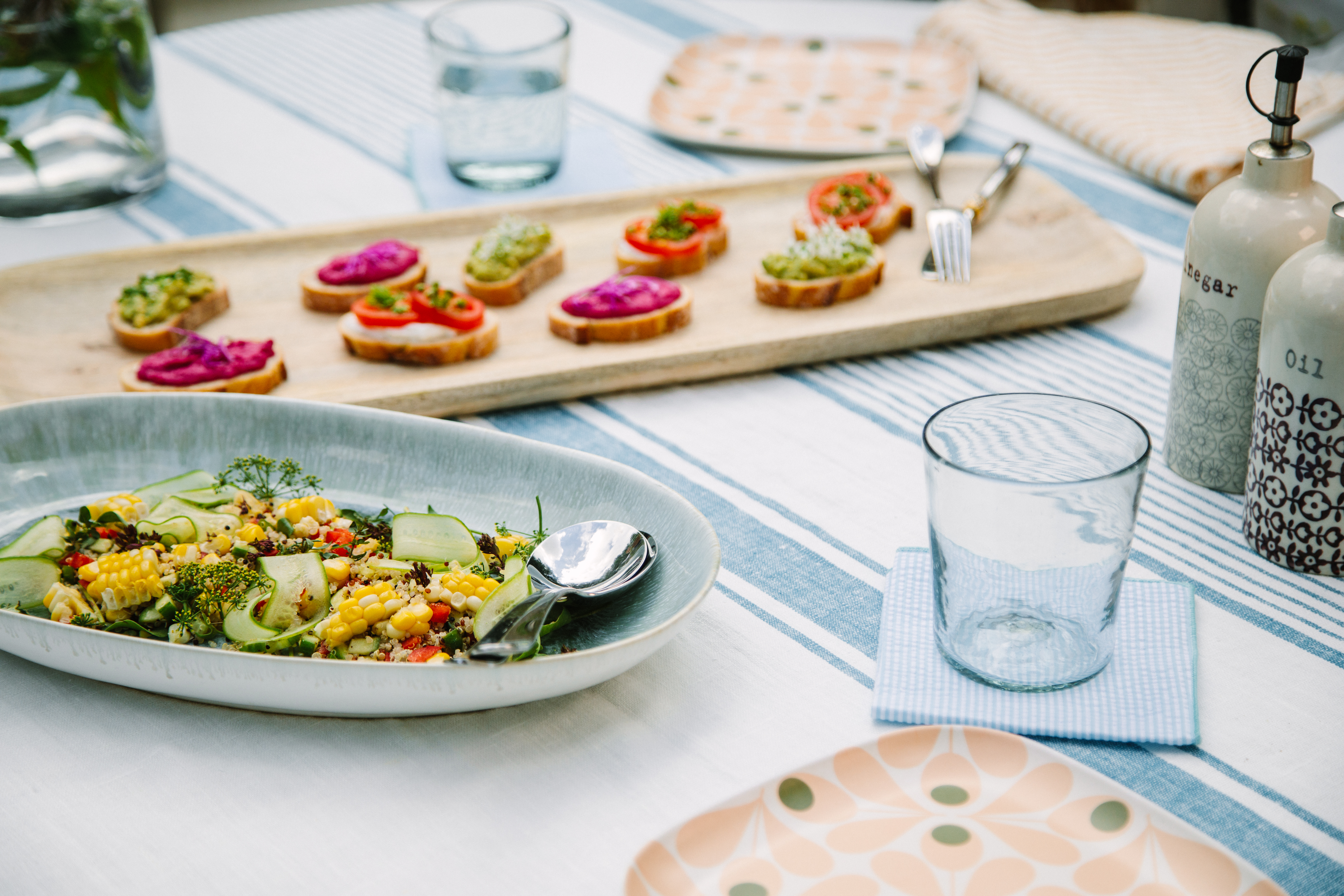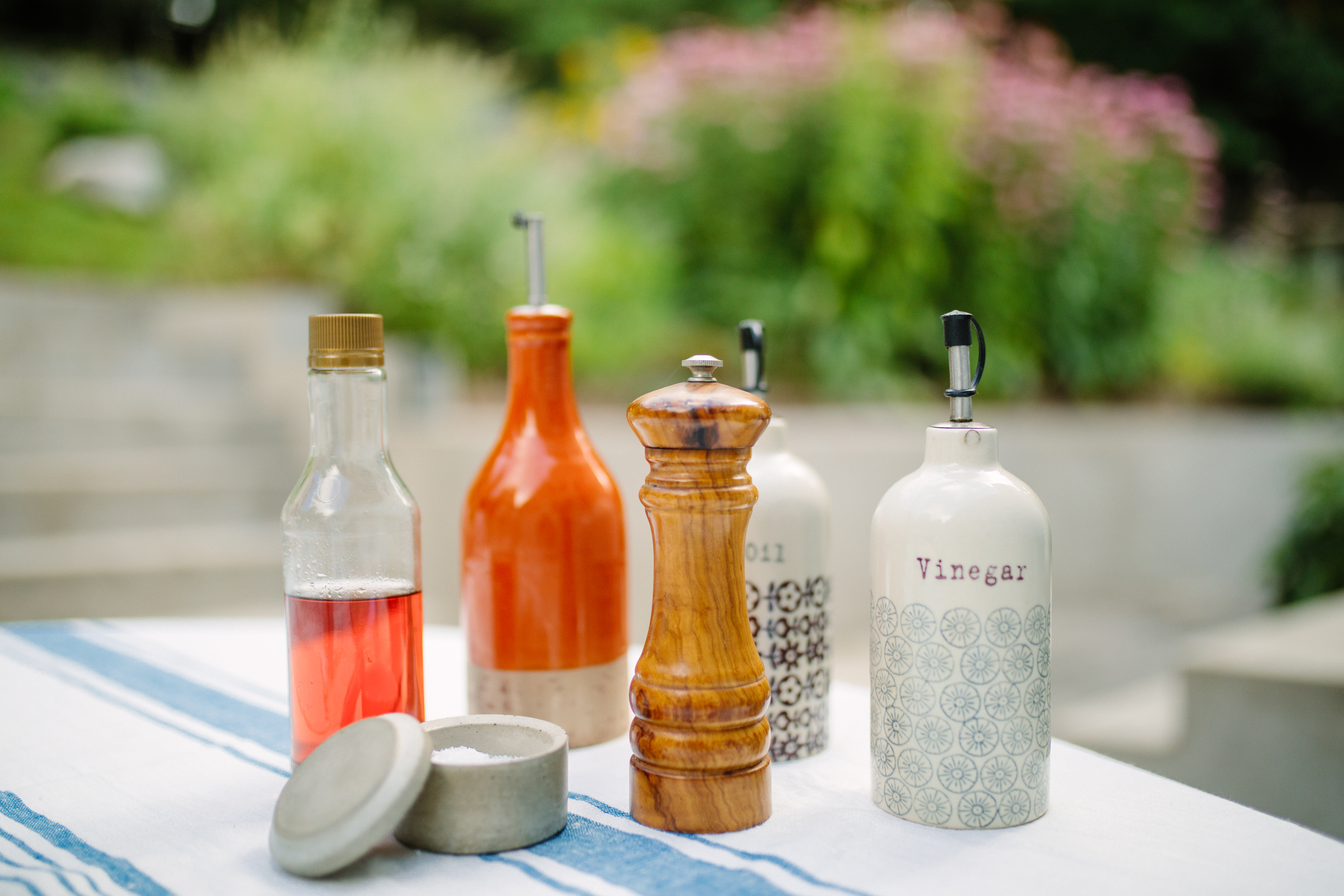
Choosing a great oil to cook with can be confusing when you are standing in the supermarket aisles, confronted by rows and rows of different oils to choose from. That's why I'm offering this guide to help you make the best choice for your health, your budget, and your taste buds.
A Brief History of Fat
What we know: Our bodies need six essential nutrients to survive: vitamins, minerals, water, protein, carbohydrates, and fat.
When the government and nutritional associations started recommending low-fat diets in America, their goal was to limit the amount of less-beneficial fats in foods. However, when food corporations embraced the trend, they started to replace all fats with less nutritious ingredients. Sugar, for example, is fat-free but has calories and no nutrients. The result? The average American actually became more obese.
No matter the amount of fat that feels best or works best with your body, the quality of the fat you eat is significant to your health and well-being. Good fats are a source of energy, help you absorb fat-soluble vitamins and minerals, and are essential for many bodily functions.
Different Types of Fats
There are several types of fats, and some of them are very beneficial while others have been banned due to their harmful effect on our health. In general, the more natural the fat, the better for you it is. The unhealthy fats are those that have gone through chemical processes.
Here's a guide:
- Trans fats are the product of hydrogenation, a process that turns fats into solids to keep them from going bad. It became fairly common in commercial desserts, shelf-stable products like vegetable oils and shortening, and peanut butter. It is still used to fry foods by many restaurant chains today. Even though it has been banned in American and many other countries because these trans-fatty acids have no safe level of consumption; companies, especially in America, still use it as it is cheap (and nasty) they call it "partially hydrogenated oil".
Foods that may still include trans fats include:
- vegetable shortening
- some microwave popcorn and peanut butter
- some brands of margarine and vegetable oil
- fried fast food
- baked goods (especially those with shortening and margarine)
- non-dairy coffee creamers
Even if the nutrition facts list 0 grams of trans fat, you should still read nutrition labels. Partially hydrogenated oil might be an ingredient in many foods.
- Saturated fats are solid at room temperature. Common sources include animal fat, dairy, and coconut oil. Most experts recommend limiting saturated fats because they increase overall cholesterol, even though not all cholesterol is bad. Different saturated fats affect the body in different ways. For example, plant-based saturated fats like coconut oil are especially good at raising the good type of cholesterol in the blood.
- Monounsaturated fats are liquid at room temperature and are generally considered a healthy fat, although some are highly processed and chemically grown. They come from vegetables, nuts, seeds, and fish. Oils from olives, nuts, and avocados are excellent examples of this type of fat that is good for your body and can help prevent heart disease.
- Polyunsaturated fats are also liquid at room temperature and include omega-3 and omega-6 fatty acids. Healthy sources of polyunsaturated fats include fish like salmon and sardines and many types of nuts and seeds. Your body can't make this type of fat on its own, so you need to get it from food.
It makes sense that some of the healthiest fats are the ones that come from some of our healthiest foods, like vegetables, fruits, fish, nuts, and seeds. But you still need to be mindful of what fats you are eating, how they are grown and processed to ensure you really are eating high quality.
Choosing Healthy Oils
Oils can be tricky because many are highly processed. Major examples include canola, soy, and corn oils, which almost always come from a genetically modified organism (GMO) and are grown using lots of herbicides and pesticides. Canola oil is partly derived from the rapeseed plant, which without genetic modification contains toxins that are unhealthy for humans.
Another issue with these oils is the way they are made. Canola, soy, and corn aren't naturally high in fat, so to get enough oil out of them producers often use heat, chemicals, bleach, and deodorizers.
Oils that are healthier for you and the environment are oils from foods that are naturally high in fats such as olives, avocados, coconuts, nuts and seeds. These oils can be derived through a cold-pressing method that preserves the natural nutrients.

My Favourite Oils
It's a personal decision when you choose the right oils for your health, budget and taste buds. Personally, as a chef, I have strong opinions about cooking oils; how they are made, what's healthy for our bodies, and what's healthy and sustainable for our environment.
Personally, I love olive oil; I have been using it for decades! I typically go to European specialty stores to buy tins of cold-pressed extra virgin olive oil from small-batch estates. Buying EVOO this way works out to be cheaper than supermarket oil and is far superior in flavour and quality.
Instead of frying foods, I pan sear, grill, and bake, and olive oil works perfectly. I lived and cooked in Europe and the Mediterranean for 10 years and experienced the beautiful olive groves, olives, and olive oil that are so integral to the culture and landscape, so delicious and so good for you!
I do use some other oils sparingly. I use coconut oil for baking, chocolate making, and sweet treats. I use sesame oil occasionally for Asian style flavours, and once in a while, I use butter, especially on freshly dug potatoes.
Otherwise, it's extra virgin olive oil (EVOO) for me!! I trust ancient history, ancient wisdom, and ancient olive trees way more than I trust modern-day food science. The "current state" of the modern-day diet and the modern-day agricultural chemical industry drives me only to clutch my olive oil tighter and research the origin of my food more and more...but that's me personally!
***This article is not intended to diagnose, treat, cure, or prevent any disease.
References:
- https://www.health.harvard.edu/staying-healthy/the-truth-about-fats-bad-and-good
- https://www.healthline.com/nutrition/10-super-healthy-high-fat-foods#section5
- https://www.nutritionadvance.com/harmful-effects-of-soybean-oil/
- https://www.heart.org/en/health-topics/cholesterol/prevention-and-treatment-of-high-cholesterol-hyperlipidemia/the-skinny-on-fats



 letter
letter